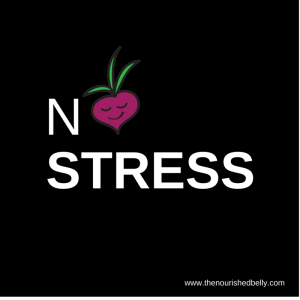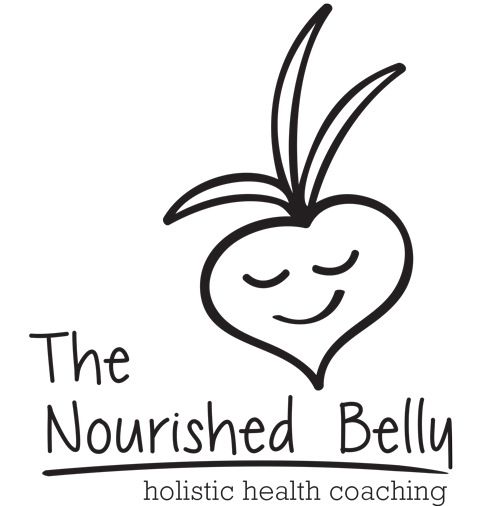 It always seems that we come down with something at the worst possible times… before a big test, a presentation at work, an event or special day. We cross our fingers, pay close attention to our hand washing techniques, and are sure to drink an extra-large glass of orange juice during these times. Despite our gallant efforts, we still end up sick.
Why? Believe it or not, our state of mind and stress play a huge role in how healthy we are. There is actually an entire concentration of science dedicated to studying the relationship between stress and our immunity- psychoneuroimmunology. When we are under stress our body is incapable of functioning at its highest potential. Think of it this way- when our bodies are in that fight or flight mode we are in a heightened state of emotion. Our bodies are working harder in a sense “protect” us, so all of our non essential functions power down; including our immunity! All we need at the moment is to be able to run from that tiger, which is a bigger threat than the possible far away future of getting sick. So when we are stressed, we are in essence turning off our immune system. This also means that when we want to heal, our recovery time can take longer as well!
It always seems that we come down with something at the worst possible times… before a big test, a presentation at work, an event or special day. We cross our fingers, pay close attention to our hand washing techniques, and are sure to drink an extra-large glass of orange juice during these times. Despite our gallant efforts, we still end up sick.
Why? Believe it or not, our state of mind and stress play a huge role in how healthy we are. There is actually an entire concentration of science dedicated to studying the relationship between stress and our immunity- psychoneuroimmunology. When we are under stress our body is incapable of functioning at its highest potential. Think of it this way- when our bodies are in that fight or flight mode we are in a heightened state of emotion. Our bodies are working harder in a sense “protect” us, so all of our non essential functions power down; including our immunity! All we need at the moment is to be able to run from that tiger, which is a bigger threat than the possible far away future of getting sick. So when we are stressed, we are in essence turning off our immune system. This also means that when we want to heal, our recovery time can take longer as well!
It is important that we manage stress to avoid these complications. Heart disease, cancer, heart attack- studies show these can all be induced by chronic stress. When our immune system is compromised our overall health is greatly affected and if you need a brush up on why stress can halt your weight loss efforts, read here. We simply lose the desire to make conscious health choices, stay active, and feel happy.
Manage Stress Before it Makes You Sick.
- Take time each day to unwind and find inner peace. Whether it’s by diving into a good book, trying a new local spot with a friend, or taking an extra lap on your run, find something that you can make your “go to” when you become stressed. Having a conscious plan to address stress when it first begins will greatly decrease the impact on your immunity.
- As mentioned in part one of the Stress and You series, avoid foods and drinks that stimulate stress. Items high in caffeine and sugar cause havoc on the body and put us in a artificially amped up state. I once went swimming after drinking coffee...and I was like a robot... nonstop! I also was hyper aware that the energy almost wasn't my own! So steer clear of these stimulants and if consumed, do so in moderation.
- Pay regular attention to your body’s messages. If you feel yourself getting overwhelmed or stress starting to develop, assess your current situation. What may be triggering these feelings? What can you do to address them? Start to put yourself in control of your reactions in order to inhibit them from manifesting into something more detrimental.
If You Do Get Sick, Pay Close Attention to Keep Stress at a Minimum.
- Rest, but don’t baby yourself. When we are sick we immediately want to curl up on the couch and wait out the storm. While it is important to rest and replenish, too much nurturing can actually cause more harm. Engage in low energy activities that are stimulating to the mind- do a puzzle, read a book, etc. Keep your mind active while still getting the rest you need.
- Take a bath! Baths are great for managing stress and super helpful to help kick out those germs when we are sick. Take a warm bath with a few drops of essential oils such as lavender or eucalyptus to naturally calm your body.
- Sleep!
Sleep will not only help you get better quicker, but feeling well rested is one of the number one ways to prevent stressful days.
The importance of managing our stress levels is great on a day to day basis, but is especially important when faced with illness or injury. Try using the different stress management techniques as often as possible to implement as a normal routine!
Written by Ashley Green and Tammy Chang for The Nourished Belly
Sources: American Pyschological Association. Stress Weakens the Immune System. Retrieved from http://www.apa.org/research/action/immune.aspx
Seinberg, S. The Sweet 16 of Holistic Stress Reduction. Retrieved from http://www.mindbodygreen.com/0-5947/The-Sweet-16-of-Holistic-Stress-Reduction.html
